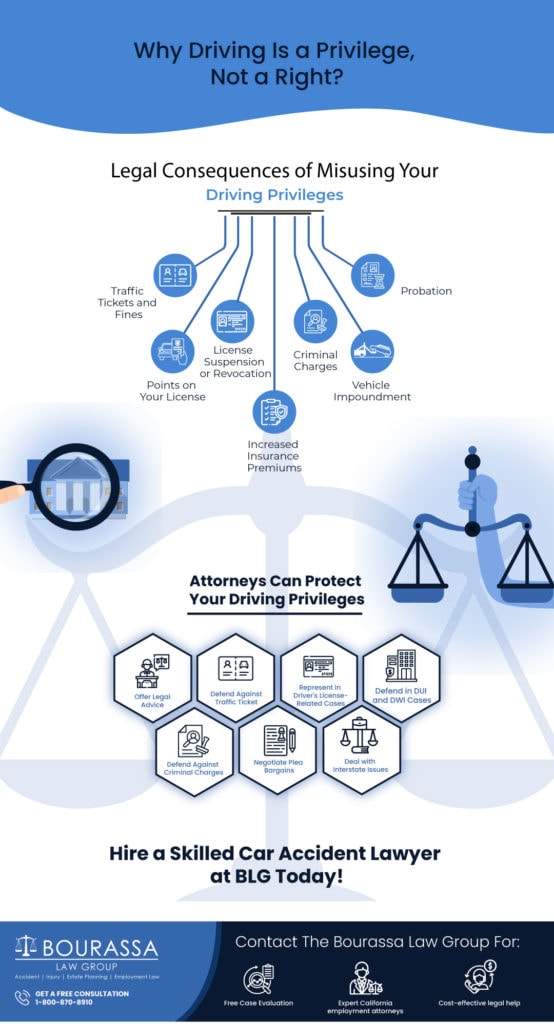
Driving – a seemingly mundane activity that has become an integral part of our daily lives. For many, it’s second nature, something we often take for granted. But have you ever stopped to consider the significance of those four wheels on the road? In the United States, and particularly in Nevada, where we will focus, driving is a privilege, not a right.
Why Driving Is a Privilege, Not a Right?
Let’s start by clarifying the fundamental concept: driving is a privilege, not a right. What does this mean, and why is it important for you to understand this distinction?
First and foremost, recognizing that driving is a privilege means understanding that it’s not an inherent, unrestricted entitlement. Instead, it’s a permission granted by the government to individuals who meet specific criteria. In the context of Nevada, this privilege is presented through the issuance of a driver’s license, which implies that the state government grants you the authority to operate a motor vehicle on public roads.
For instance, freedom of speech is a right not a privilege. You have this right as per the United States Supreme Court and the Constitution. In contrast, for getting a driver’s license, you need to meet a certain criteria and pass safety tests.
This is where the concept of “due process“ comes into play. Due process is a legal principle that ensures that the government cannot deprive citizens of their fundamental rights without following specific procedures and providing just cause. However, driving a car is not considered a fundamental right under the due process clause.
Importance of a Driver’s License
The requirement to obtain a driver’s license is a manifestation of this principle. To get behind the wheel legally, you must undergo a series of steps, including passing a driving test, driver education, and meeting age requirements. These prerequisites are in place to ensure that individuals who operate motor vehicles on the road are competent, knowledgeable, and responsible drivers.
The government’s role in regulating driving privileges is motivated by public safety concerns. The ability to operate a motor vehicle can have life-altering consequences, both for the driver and other road users. Therefore, strict scrutiny is applied to the process of granting and revoking driver’s licenses, as well as the rules and regulations governing driving.
Strict Scrutiny and Public Safety
Public safety is a primary consideration in all matters related to driving privileges. For this reason, the government maintains strict scrutiny over the issuance and revocation of driver’s licenses. Strict scrutiny is a legal standard used by courts to assess the constitutionality of laws that may impede fundamental rights or discriminate against citizens. In the case of driving, this scrutiny is applied to protect public safety.
In the interest of public safety, the government imposes regulations on various aspects of driving, such as speed limits, rules of the road, and the operation of vehicles. These regulations are aimed at preventing accidents, ensuring proper behavior on the road, and preserving the safety and well-being of all citizens.
What Are the Legal Consequences of Misusing Your Driving Privileges?
Misusing your driving privileges can lead you to various legal consequences, which can vary depending on the nature and severity of the violation, as well as the laws specific to your jurisdiction. Here are some common legal consequences for misusing your driving privileges:
What Are the Legal Consequences of Misusing Your Driving Privileges?
Misusing your driving privileges can lead you to various legal consequences, which can vary depending on the nature and severity of the violation, as well as the laws specific to your jurisdiction. Here are some common legal consequences for misusing your driving privileges:
Traffic Tickets and Fines:
The most common consequence of misusing your driving privileges is receiving a traffic ticket. You might get these tickets for a wide range of violations, such as speeding, running red lights, or not wearing a seatbelt. Fines associated with these tickets can vary widely, and they are often payable to the local or state government.
Points on Your License:
Many jurisdictions use a point system to track and penalize traffic violations. Each violation carries a specific point value, and accumulating too many points on your driver’s license can lead to additional penalties. These may include license suspension or the requirement to attend traffic school.
License Suspension or Revocation:
Serious violations or accumulating too many points can lead you to the suspension or revocation of your driver’s license. The length of the suspension or revocation can vary depending on the nature of the violation and the laws in your jurisdiction. Driving with a suspended or revoked license can lead to further legal consequences.
Increased Insurance Premiums:
Traffic violations can result in increased auto insurance premiums. Insurance companies often consider your driving history when determining your rates. Serious violations or accidents can lead you to significantly higher premiums.
Criminal Charges:
Some violations, such as driving under the influence (DUI) or reckless driving, can result in criminal charges. If convicted, you may face fines, probation, mandatory alcohol or drug counseling, or even jail time, depending on the severity of the offense.
Vehicle Impoundment:
Certain violations, like driving without a valid license or driving an unregistered vehicle, can lead to your vehicle being impounded. You’ll typically need to pay fees to retrieve your vehicle.
Probation:
In some cases, you may be placed on probation as part of your sentence, during which you must comply with specific conditions, such as avoiding further violations and attending counseling or rehabilitation programs.
Permanent Record:
Traffic violations can result in a permanent record on your driving history, which can affect your ability to obtain certain jobs or security clearances. It may also impact your ability to rent a car or receive favorable insurance rates in the future.
How an Attorney Can Protect Your Driving Privilege
An attorney can play a crucial role in helping individuals with driving privileges in various ways, especially when dealing with legal issues related to driving and traffic violations. Here are some of the key roles and responsibilities of an attorney in the context of driving privileges:
Legal Advice: Attorneys can provide legal advice and guidance on matters related to driving privileges. They can explain the implications of traffic violations, the potential consequences, and the best course of action to take in your specific situation.
Traffic Ticket Defense: If you receive a traffic ticket, an attorney can help you contest the ticket in court. They can investigate the circumstances of the ticket and explore potential defenses to have the ticket reduced or dismissed. This can help prevent points on your license and increased insurance premiums.
Driver’s License Suspension or Revocation: If your driver’s license is at risk of suspension or revocation due to accumulated points or specific violations, an attorney can represent you in administrative hearings or court proceedings. They can argue on your behalf to potentially have the suspension or revocation reduced or reversed.
DUI and DWI Defense: For more serious offenses like driving under the influence (DUI) or driving while impaired (DWI), an attorney is crucial. They can build a strong defense, challenge evidence, negotiate with prosecutors, and represent you in court to minimize the consequences, such as license suspension, fines, or jail time.
Criminal Defense: If you are facing criminal charges related to driving, such as vehicular manslaughter or reckless driving, an attorney can provide a robust defense, ensuring your rights are protected and exploring legal options to minimize penalties.
Negotiating Plea Bargains: Attorneys can negotiate with prosecutors to reach plea bargains or settlements in cases involving traffic violations or driving offenses. They can potentially help reduce charges, fines, or other penalties.
Appeals: If you have lost your case or are unsatisfied with the outcome, an attorney can help you with the appeal process. They can file the necessary paperwork and represent you in appellate court to seek a more favorable judgment.
Restoring Driving Privileges: If your driver’s license has been suspended or revoked, an attorney can assist you in the process of seeking reinstatement. They can guide you through the requirements, paperwork, and hearings needed to regain your driving privileges.
Legal Representation in Court: When you are required to appear in court for traffic violations or driving-related matters, an attorney can represent you, ensuring that your rights are protected, and advocating on your behalf to achieve the best possible outcome.
Interstate Issues: If you have a driver’s license from one state but are facing legal issues in another, an attorney can help navigate the legal complexities of dealing with multiple state jurisdictions.

Hire a Skilled Car Accident Lawyer at the Bourassa Law Group Today!
In conclusion, it’s crucial to understand that driving is a privilege, not a right, in Nevada and throughout the United States. This distinction is firmly grounded in the legal framework and the decisions of the U.S. Supreme Court. While citizens enjoy a wide range of fundamental rights and freedoms, the operation of a motor vehicle is subject to government regulation in the interest of public safety.
Driving may be a part of our daily lives, but it’s essential to remember that it’s a privilege, not a right, and it comes with responsibilities that can affect not only your life but also the safety of others on the road. So, let’s all drive responsibly and within the bounds of the law, respecting the privilege we’ve been granted.
If you’re facing legal challenges related to your driving privileges, our team of experienced attorneys at BLG is here to help. Whether you’re dealing with traffic violations, license suspension, DUI charges, or any driving-related legal issues, we have the knowledge and expertise to guide you through the process.
Don’t leave your driving privileges to chance – contact us now to secure your legal representation and safeguard your rights on the road. Your future on the road starts with us!





